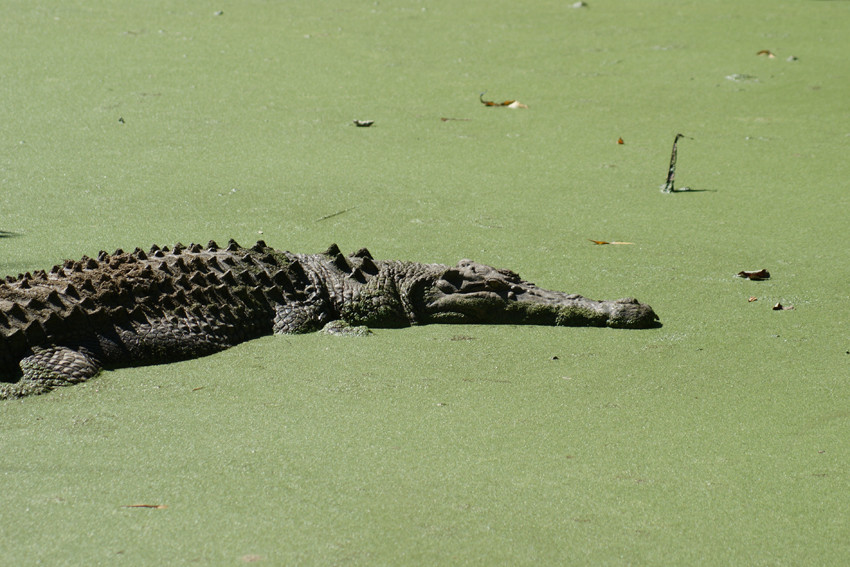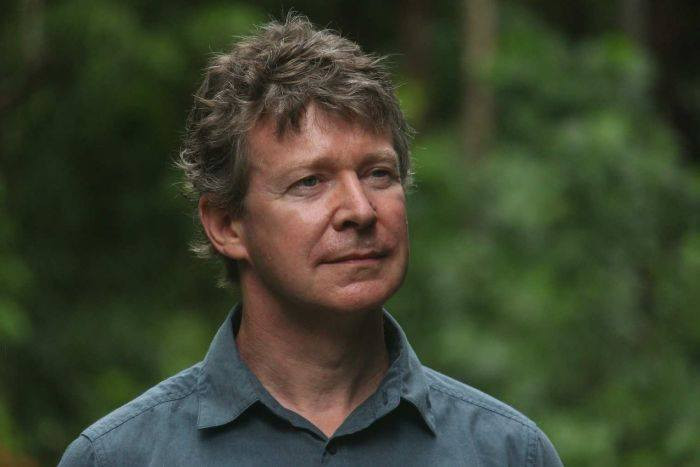General News
18 February, 2021
Scientist urges calm on croc hysteria
ONE of Australia’s leading crocodile experts says that Australia’s crocodile management strategy is working well, and attacks are not on the increase overall, despite a spate of three attacks in the last three weeks.

Tragically, human remains were found inside a 4.2 metre crocodile euthanised after Cairns yachtie Andrew Heard, 69, went missing last Thursday.
His overturned dinghy was found in Gayundah Creek near Hinchinbrook Island after he failed to return from a fishing trip.
Two more non-fatal crocodile attacks occurred in the past three weeks, including one at Cairns and one at Weipa.
Katter’s Australian Party Leader and Member for Traeger Robbie Katter accused the State Government of not doing enough to deal with crocodiles, and called for support for a KAP bill to increase crocodile culling.
Mr Katter said government-collected data showed unconfirmed crocodile sightings rose from 175 in 2010, to 331 in 2015, and 721 in 2019.
However, leading crocodile experts Dr Adam and Erin Britton from Big Gecko Crocodilian Research said the rate of crocodile attacks had not increased significantly, despite the huge increase in crocodile numbers since they became protected in 1974.
The zoologist couple run the CrocBITE project which documents all crocodile attacks around the world.
They said Australia had the lowest risk of crocodile attack per capita of any country that has saltwater crocodiles, and government agencies worldwide looked to Australia for advice on how to improve their own crocodile safety programs.
They also said that public education on crocodile safety had been proven as the best way to address attacks.
“Although there were three recent attacks in as many weeks, crocodile attacks remain extremely rare events overall. Prior to that, the three previous attacks in Queensland, all non-fatal, were spaced over three years,” said Dr Adam Britton.
“Crocodile attacks are random, but on average, only one person a year is bitten by a crocodile, and only one in four of those are fatal.
“The reason crocodile attacks are so rare is because you’re seeing the results of an effective crocodile management plan.
“Western Australia, the Northern Territory and Queensland’s crocodile management plans are based on 50 years of knowledge and experience on what works.
“For Robbie Katter MP to call these “a load of croc” shows a lack of understanding on the issue, and why his advice should be treated with caution.
“Katter suggests that they’ve tried to introduce legislation to cull crocodiles annually.
“Australian management plans already allow for this, and a number of crocs are removed each year when they become a problem because their behaviour poses a heightened risk to people.
“This targeted removal can be effective for such individuals, but a more indiscriminate cull is not because it doesn’t address the problem.
“In the 1970s when there were a fraction of the crocodiles that exist today, there were still fatal attacks on people. People didn’t take any precautions because they had a false sense of security and swam in dangerous places.

“So, a widespread cull will never solve this issue, because we can never get rid of crocodiles completely, so there will always be a risk, and people will always have to be careful where they swim.
“For example, we can’t get rid of all the Irukandji and box jellyfish from our oceans, we just accept that there is a time of year when we can’t go in the water, and we take precautions.
“It’s the same with crocodiles. In the dry season its easier for rangers to go in and do spotlight surveys and say it’s relatively safe to swim somewhere. But in wet season the crocodiles are more active and on the move and the risks increase.
“What works now, as it did back then, is giving people information on how to stay safe around crocodiles. All three recent incidents in Queensland could have been avoided if the victims had followed existing safety guidelines.
“The way forward is to continue to improve education and awareness of crocodile safety.
“It’s a constant process of repeating messages, because every message saves lives. Even locals who are experienced around crocodiles may be overlooking safety because croc attacks are so rare.
“Crocodile management is not about valuing crocodiles over people, it’s about keeping people safe around crocodiles, while recognising the value that crocodiles can give people.”
Mr Britton said crocodiles were a vital part of a healthy river ecosystem, and were also beneficial to the Far North economy as tourism businesses thrived from croc-spotting tours.
He also said he supported the introduction of permits for traditional landowners to collect crocodile eggs from unviable nests found below waterway tide-lines. He said the practice worked well in the Northern Territory to boost regional economy while supplying crocodile farms with animals for skins and teeth, without affecting the crocodile population.
The crocwise website warns people “Do not use kayaks, paddleboards and other small craft in crocodile habitat areas. The smaller the vessel, the greater the risk—crocodiles have taken people from small vessels.”
The website also advises that bait and caught fish must be kept covered and well away from the water as the smell will attract crocodiles.


